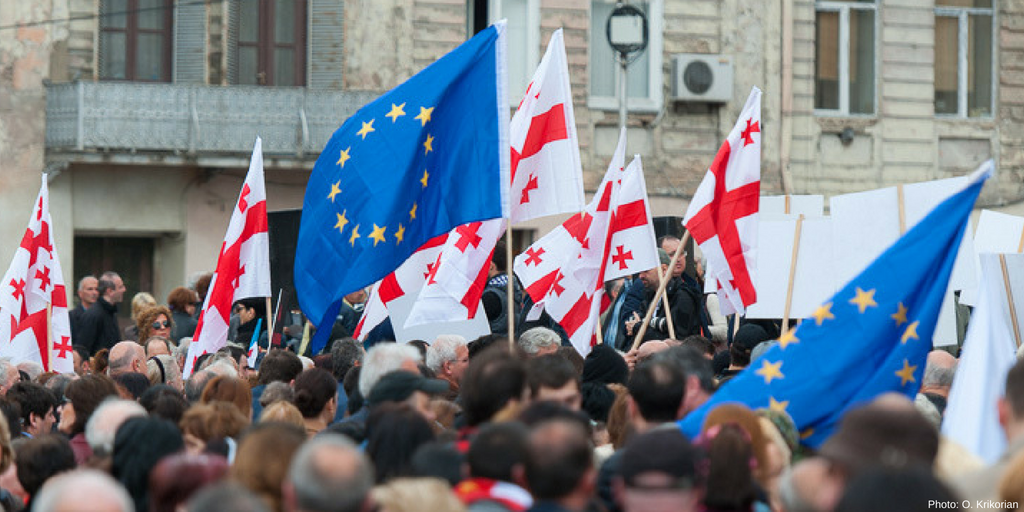
Washington has imposed travel restrictions on dozens of Georgian officials in response to the enactment of the controversial “foreign agent” law that drew weeks of nation-wide protests and criticism from Tbilisi’s Western allies.
Announcing the sanctions on June 6, State Department spokesman Matthew Miller said the first tranche of visa restrictions comprises members of the ruling Georgian Dream party, members of parliament, law enforcement, and private citizens.
"This includes individuals responsible for or complicit in, and immediate family members of those responsible for or complicit in undermining democracy in Georgia, such as by undermining freedoms of peaceful assembly and association, violently attacking peaceful protesters, intimidating civil society representatives, and deliberately spreading disinformation at the direction of the Georgian government," Miller said.
The bill proposed by Georgia Dream party in April was later vetoed by President Salome Zourabichvili. On June 3, Parliament Speaker Shalva Papuashvili signed the legislation sealing the override of the president's veto. Critics of the bill denounce it as a “Russian law” and believe it will undermine Georgia’s democratic path and derail Tbilisi’s integration to the European Union.
The bill requires any non-governmental organization that receives twenty percent of its funding from abroad to register as “pursuing the interests of a foreign power”. The government argues that the bill is needed to defend the country from foreign actors seeking to destabilize the nation of 3.7 million. However, civil society members and journalists argue that the bill will be used to stifle dissent and undermine freedom of speech ahead of parliamentary elections scheduled for October.
Secretary of State Antony Blinken warned last month about possible sanctions against the government after parliament's initial passage of the bill. The White House official also said Washington was reviewing all its assistance to the South Caucasus nation, which has amounted to $390 million over the past several years.